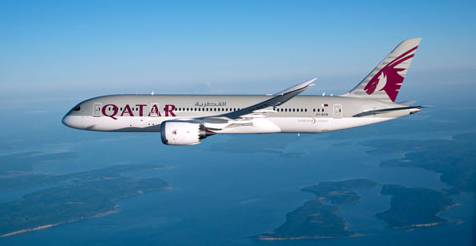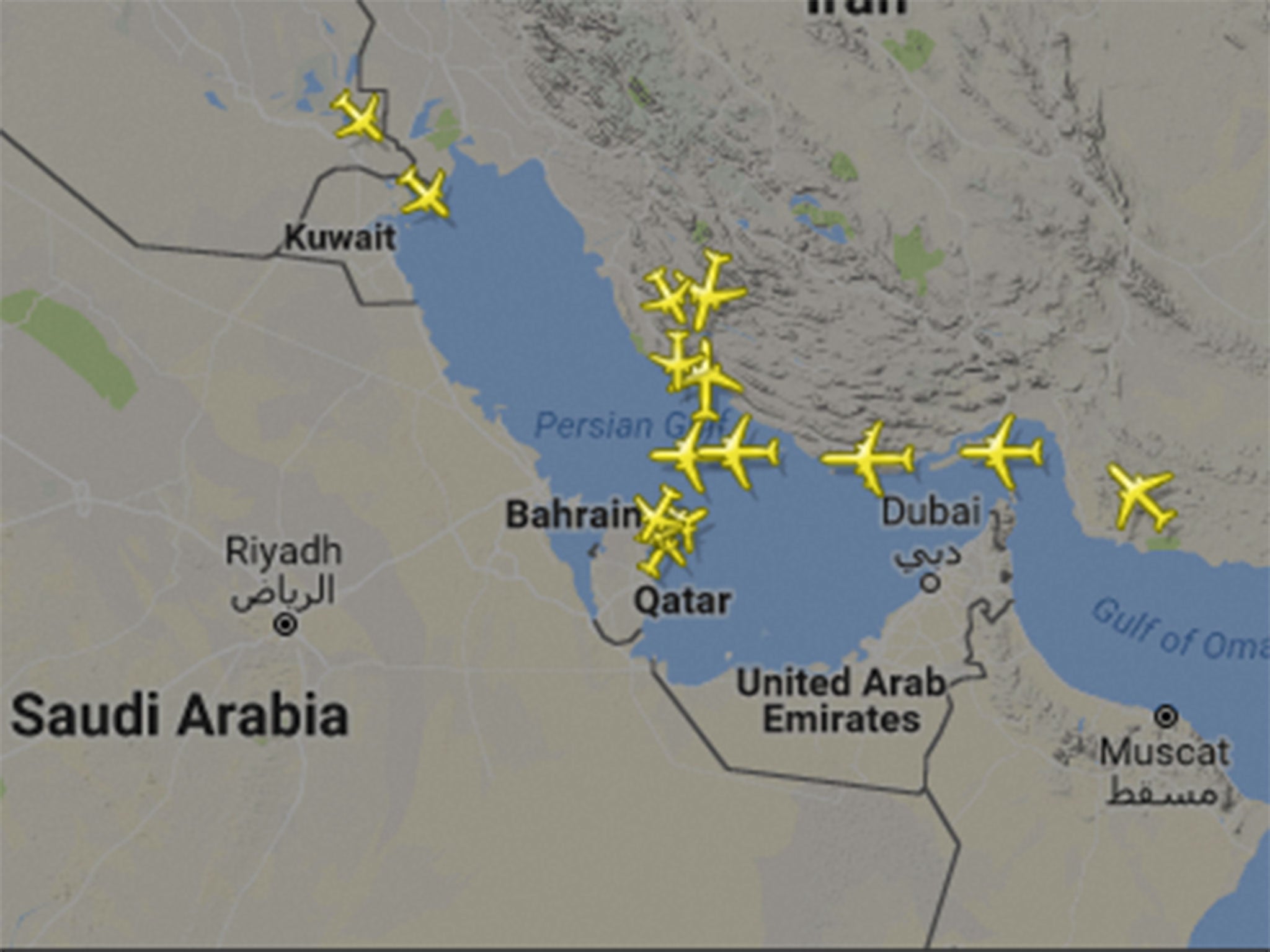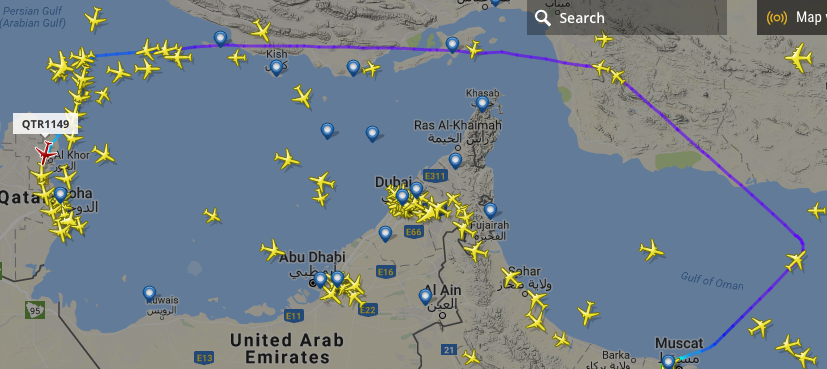The Independent's journalism is supported by our readers. When you purchase through links on our site, we may earn commission.
Qatar Airways hit by airspace ban as Gulf diplomatic row intensifies
Flights grounded between Doha and Dubai as feud with Saudi Arabia, UAE, Egypt and Bahrain deepens over country's alleged support for Iran and Islamist militants

At 3.34am local time, Emirates flight 848 departed from Doha to Dubai – the last link between these two Middle Eastern hubs until a furious diplomatic row ends.
On a normal day there are almost 20 flights each way between the Qatari airport and Dubai, making it the busiest route in the region. But from 4am today, they are all grounded – along with dozens of other departures and tens of thousands of passengers.
Bahrain, Egypt, Saudi Arabia and the United Arab Emirates have cut military and diplomatic ties with Qatar, alleging the country has been supporting extremist groups.

Airlines including Emirates and Etihad have been told to stop flying to Qatar. Emirates announced: “As instructed by the UAE government, Emirates will suspend its flights to and from Doha, starting from the morning of 6 June 2017, until further notice.
“All customers booked on Emirates’ flights to and from Doha will be provided with alternative options, including full refunds on unused tickets and rebooking to alternate Emirates destinations.”
The fare-comparison website Skyscanner is listing complex and expensive one- and two-stop connections between Doha and Dubai, rather than the usual 70-minute hop.
Saudi Arabia's closure of airspace to Qatar Airways planes seriously affects the airline’s connections with Africa. The overnight arrival from Johannesburg, QR1368, was routed via Oman and Iran to avoid Saudi airspace.
While as signatories to the 1945 International Air Services Transit Agreement, Bahrain, Egypt and the UAE are obliged to allow overflights, the evidence from flight paths monitored by The Independent shows that Qatar Airways is avoiding their airspace.


The world’s longest flight, from Doha to Auckland, became even longer with a lengthy diversion over Iran.
Early arrivals at Doha on Tuesday morning displayed on FlightRadar24 showed a range of sub-optimal routings. The arrivals from Adelaide, Melbourne and Perth took a northern course over Pakistan and Iran rather than the direct track across the UAE. They all approached Doha from the north, arriving late in Doha.
Qatar Airways flight 1149 from Muscat in Oman took an extremely circuitous route to avoid UAE airspace, initially heading east, away from Doha, before turning north-west to Iran.
Qatar Airways flies from Heathrow, Birmingham, Manchester and Edinburgh to Doha. These routes are unlikely to be affected, with aircraft using Turkish and Iranian airspace. But the vast majority of passengers transferring to onward flights. With aircraft flying circuitous routes and picking up delays en route, the potential for disruption of the complex “hub and spoke” operation is significant.
The Independent has asked Qatar Airways how British passengers are likely to be affected, but has not yet had a response.
Air Transport World reported that Qatar Airways’ CEO, Akbar al-Baker, abandoned an airline chiefs’ event, the IATA annual general meeting, to return to Doha. He is reported to have flown back on Monday on a private jet.
It is unclear what the effect will be on other airlines’ flights. Qatar Airways is the biggest shareholder in British Airways’ parent company, IAG, with one-fifth of the equity. BA flight 123 from Heathrow to Doha arrived on time, after flying over Turkey and Iran.
A reciprocal ban by Qatar on aircraft from the countries which have imposed the restrictions will not have a significant effect on operations.
Join our commenting forum
Join thought-provoking conversations, follow other Independent readers and see their replies
Comments
Bookmark popover
Removed from bookmarks